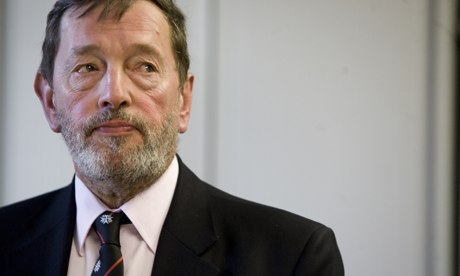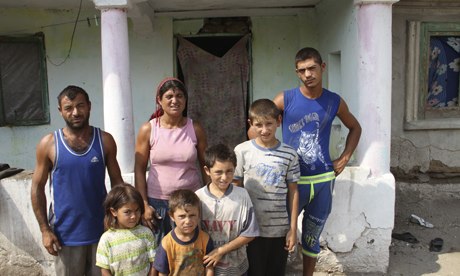
My favourite character in the Diskworld (after
Granny Weatherwax, of course!) is Captain
Sam Vimes of the Night Watch. We first meet him in "
Guards! Guards!"staggering slowly down the street in the grey light of a drizzly dawn and collapsing drunkenly into the gutter outside the Watch House. Terry Pratchett uses this scandalous, lovable, irrational,courageous, stubborn,loyal, bigoted, idealistic character as a lever to open up the hard shell of our prejudices and enable us, alternately, to laugh at them or to recognise them as reprehensible. Even while we are disapproving of him, we cannot help acknowledging how like us he is.
For a start, his prejudices are much like ours. You don't refer to dwarfs and trolls as "gritsuckers" and "rocks" because they are "fellow sapient races who have chosen to throw in their lots with the people of the city". In truth, as his men note, he doesn't like anyone much, which enables them to see his negative comments as a consistent characteristic of the man, rather than as any evidence of bias. But vampires are a different matter, and so are aristocrats like Lord Rust.
In "
Jingo" Pratchett makes one of his most sustained attacks on xenophobia, while being enormously entertaining and inventively funny. Vimes sets off to war, not in order to join in, but to arrest the combatants for breach of the peace.
"
Snuff", written fourteen years later, is a much darker novel. The cynical Lord Vetinari, Vimes' boss and despotic ruler of Ankh Morpork, is found, uncharacteristically "awash with tears" as he contemplates the goblin race. "Vermin, Drumknott," he reflects aloud to his secretary, "an entire race reduced to vermin!" Vimes being Vimes, he finds himself fighting for the lives of the goblin race simply because people like Lord Rust feel able to treat them as expendable vermin. And Pratchett being Pratchett, he too is driven to show us why we should give our sympathies in this story to this apparently unlovely and unlovable race.
Within the story of "Snuff" itself, Vimes' most effective ally is his aristocratic wife
Sybil. Much as he deplores the aristocracy in general, Vimes cannot help admiring the way Sybil can use her breeding to good effect in support of truth, justice and other good things like a fry-up with black crunchy bits. When he introduces his wife to the wonderful music of goblin harpist Tears of the Mushroom, Lady Sybil doesn't take long to see a way to make acceptance of the goblin race not only possible, but fashionable.
It's hard to say how much the hugely popular Diskworld series has contributed to Britain's acceptance and celebration of itself as a multicultural society. The controlled experiment of a Britain without any knowledge of the Diskworld doesn't exist. The nearest analogues we can find, other European countries, or other anglophone countries, are probably not closely matched enough to be good comparators. But whenever I contemplate the relentless racism that faces nomadic peoples in this country, I am grateful that I can find the example of a consummate artist like Terry Pratchett who has consistently drawn attention to the facile stupidity of racism, and its sinister outcomes.
 Even the present-day Spanish authorities aren't too comfortable with his memory, and have partly or wholly destroyed the beautiful Capilla Gitana, - Gypsy Chapel - which he created by painting frescoes on the walls of his cell when he was imprisoned in the Modelo prison in Barcelona in 1945-6 and 1948-5). I have only found two images of this once much-loved work of art, the most remarkable of which is this uniquely fresh and vivid painting of Madonna and Child.
Even the present-day Spanish authorities aren't too comfortable with his memory, and have partly or wholly destroyed the beautiful Capilla Gitana, - Gypsy Chapel - which he created by painting frescoes on the walls of his cell when he was imprisoned in the Modelo prison in Barcelona in 1945-6 and 1948-5). I have only found two images of this once much-loved work of art, the most remarkable of which is this uniquely fresh and vivid painting of Madonna and Child.
















